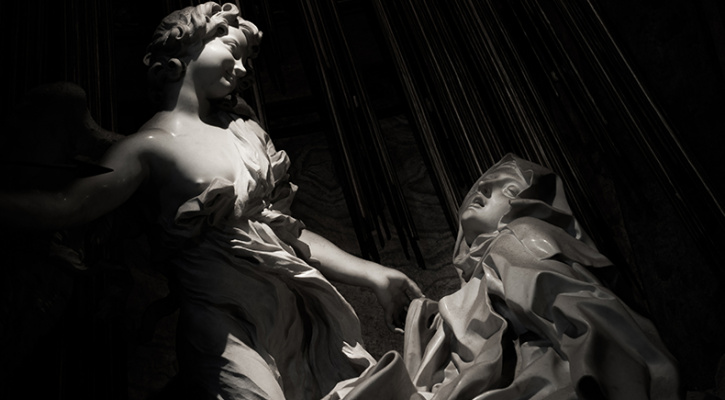Saint Teresa of Avila, Saint of the day for October 15th

Saint of the day for October 15th
(28 March 1515 - 4 October 1582)
Audio file
History of Saint Teresa of Avila
Teresa lived in an age of exploration and political, social and religious upheaval. It was the 20th century, a time of turmoil and reform. She was born before the Protestant Reformation and died almost XNUMX years after the close of the Council of Trent.
God's gift to Teresa in and through which she became a saint and left her mark in the Church and in the world is threefold: she was a woman; she was a contemplative; she was an active reformer.
As a woman, Teresa stood alone, even in the male world of her time. She was "his own woman", joining the Carmelites despite strong opposition from her father. He is a person wrapped not so much in silence as in mystery. Beautiful, talented, outgoing, adaptable, affectionate, courageous, enthusiastic, she was totally human. Like Jesus, it was a mystery of paradoxes: wise, but practical; intelligent, but very in tune with his experience; a mystic, but an energetic reformer; a holy woman, a feminine woman.
Teresa was a woman "for God", a woman of prayer, discipline and compassion. His heart belonged to God. His ongoing conversion was an arduous struggle throughout his life, involving continuous purification and suffering. It has been misunderstood, misjudged and contrary to its reform efforts. Yet she fought, courageous and faithful; he struggled with his own mediocrity, his illness, his opposition. And in the midst of all this she clung to God in life and in prayer. His writings on prayer and contemplation are drawn from his experience: powerful, practical and gracious. She was a woman of prayer; a woman for God.
Teresa was a woman "for others". Though contemplative, she spent much of her time and energy trying to reform herself and the Carmelites, to bring them back to full observance of the primitive Rule. He founded over half a dozen new monasteries. He traveled, wrote, fought, always to renew himself, to reform himself. In herself, in her prayer, in her life, in her reform efforts, in all the people she touched, she was a woman for others, a woman who inspired and gave life.
His writings, particularly The Way of Perfection and The Inner Castle, have helped generations of believers.
In 1970 the Church gave her the title she had long held in the popular mind: Doctor of the Church. She and Santa Caterina da Siena were the first women so honored.
Reflection
Ours is a time of turmoil, a time of reform and a time of liberation. Modern women have a stimulating example in Teresa. Promoters of renewal, promoters of prayer, everyone has in Teresa a woman to deal with, one they can admire and imitate.